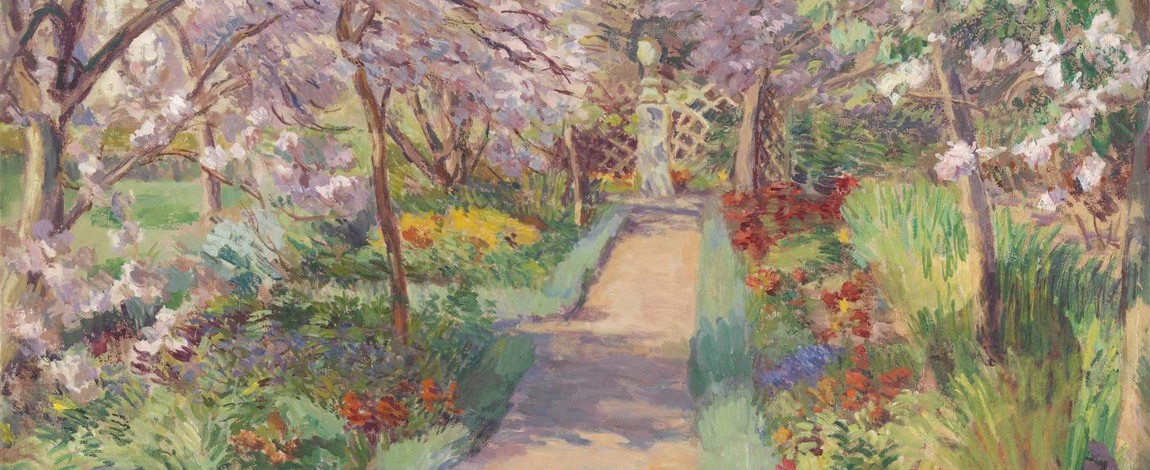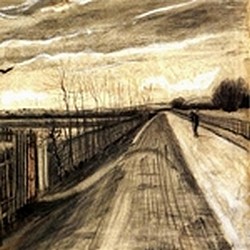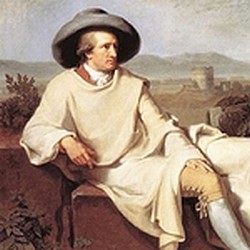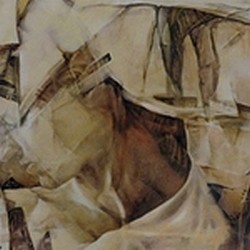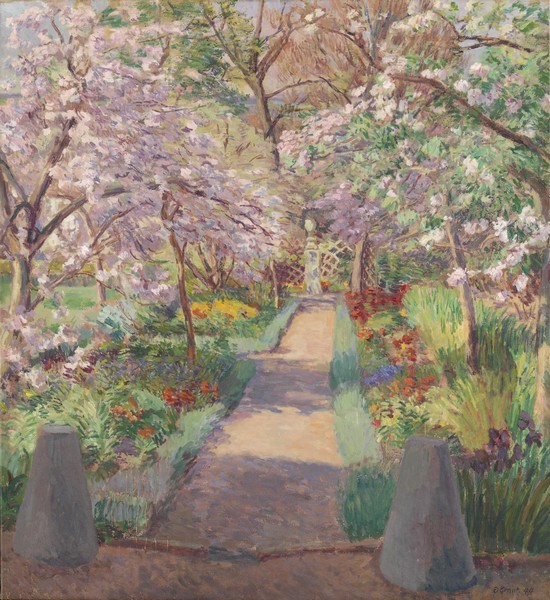
Imagine being in a garden in the spring and realizing that the flowers have lost their colour and scent, the sun isn't as warm as expected, and the ground is dry. Imagine that you realize that there's nothing wrong with the spring, it's beautiful, as always. It's your gaze that has changed, it's your sadness that keeps you from seeing beauty.
This is what Heinrich Heine's poem Warum sind denn die Rose so blass describes, a poem included in his Lyrisches Intermezzo. In 1858, more than thirty years after the publication of the poem (and two years after Heine's death), Russian playwright and poet Lev Mei made his version, and this is the text set to music by Pyotr Ilyich Tchaikovsky in 1869.
The composer was twenty-nine years old at the time, and since the opening of the Moscow Conservatory in 1866 he was professor of Music Theory. He had composed two operas and several works on commission, and he was not supposed to waste time composing songs, as they had advised him: a true composer would write symphonic pieces and operas, not those songs that were so gratifying to the nice people who had a piano at home.
The songs may not credit the author, but they provided him with income, which was appropriate for Tchaikovsky as for everyone else. Also, the songs gave the author something that few musical forms could: freedom. Composers were able to express themselves through songs without worrying about the opinion of who was paying for the commission, the soprano who would sing the aria, or the critics the day after the premiere. Instead of becoming absorbed in a very long work, they could concentrate on a poem and brood on it as long as the three or four pages of the score said exactly what they meant. In the end, that was merely a song, who would pay attention to it?
Between November 23rd and November 30th, shortly after the completion of Romeo and Juliet, Tchaikovsky composed six songs, which were released in March 1870 as Opus 6. It was his first collection, from which we heard in Wilhelm Meister's Songs series the last piece, Net, tol'ko tot, from the Russian translation, also by Mei, of Nur wer die Sehnsucht kennt. This week we will listen to the fifth song, Otchego [Why], which is how the poet called his version of Heine's poem: eight “Why” headline the eight questions in the poem, two in each stanza.
Tchaikovsky wrote his song using this same pattern. The first two stanzas have a melancholic air, and share much of the musical material; in fact, the music is repeated, grosso modo, from question to question. Among the differences between the two stanzas are two that I would like to highlight because they have a charming effect. One is the accompaniment, which in the second stanza introduces a motif in the right hand that replaces the chords in the first. The other is the crescendo with which the second question of each stanza begins; the voice returns to the opening piano in the first stanza, while in the second one it remains forte to link with the third stanza, which begins without any pause.
The third stanza changes the character of the song, which becomes more urgent. The vocal line shifts to the low notes and the accompaniment of the piano becomes more dense; the first question, and this is the only time it happens, is not formed by two musical phrases, but by three; what should be the first one splits into two. This urgency leads to the fourth stanza, which begins with fortissimo stringendo, i.e. faster than the tempo indicates. The climax of the song comes with the last, desperate question, with a somewhat unusual fortississimo, while the voice shifts to the high notes in the first sentence; in the second one, the voice lowers, and lowers. The song closes with a quiet postlude that reminds us of the brilliant spring that the poetic voice can't appreciate.
We've already heard a song from Heine's original poem, that of Fanny Hensel, so this is one more post from this still undefined series that I titled “The same poem, one more song”. After spinning around, now it's clear to me how I'll organize it, I'll tell you about it one of these weeks.
For the moment, we are listening to this beautiful song by Tchaikovsky, Otchego, in a wonderful version, that of Piotr Beczała and Helmut Deutsch. May I suggest you listen to it more than once, so you can pay attention to all the details? I hope you enjoy it!
Otchego poblednela vesnoj
pyshnocvetnaja roza sama?
Otchego pod zeljonoj travoj
golubaja fialka nema?
Otchego tak pechal'no zvuchit
pesnja ptichki, nesjas' v nebesa?
Otchego nad lugami visit
pogrebal'nym pokrovom rosa?
Otchego v nebe solnce s utra
kholodno i temno, kak zimoj?
Otchego i zemlja vsja syra
i ugrjumej mogily samoj?
Otchego ja i sam vse grustnej
i boleznennej den' oto dnja?
Otchego, o, skazhi mne skorej ty,
pokinuv, zabyla menja?
Why are the roses so pale?
o speak, my love, why?
Why in the green grass
are the blue violets so silent?
Why with such a lamenting voice
does the lark sing in the sky?
Why from the balsam weed does there rise
the scent of wilting blossoms?
Why does the sun shine down on the meadow,
so coldly and morosely?
Why is the earth so gray
and desolate like a grave?
Why am I myself so ill and dull?
My lovely darling speak,
O speak, my heart's most beloved love,
why have you abandoned me?
(translation by Emily Ezust)
The English translation corresponds to the original German poem. As usual, I also share the original Russian poem:
Отчего побледнела весной
Пышноцветная роза сама?
Отчего под зелёной травой
Голубая фиалка нема?
Отчего так печально звучит
Песня птички, несясь в небеса?
Отчего над лугами висит
Погребальным покровом роса?
Отчего в небе солнце с утра
Холодно и темно, как зимой?
Отчего и земля вся сыра
И угрюмей могилы самой?
Отчего я и сам все грустней
И болезненней день ото дня?
Отчего, о, скажи мне скорей,
Ты, покинув, забыла меня?


